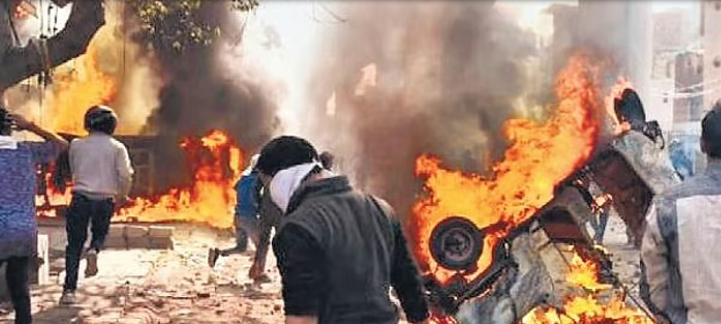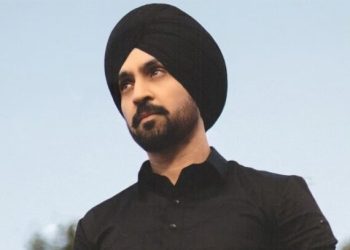By Dr. Syed Mohammad Raghib
India, which is frequently hailed as the biggest democracy in the world and a pluralistic country, is becoming increasingly alarmed about the growing intolerance and marginalization of its Muslim community. After Pakistan and Indonesia, India is home to more than 200 million Muslims, making it the country with the third-largest Muslim population worldwide. However, there has been a discernible change in the political landscape in recent years, with heightened communal polarization and specific narratives against Muslims becoming more prevalent in public debate and policy-making.
Political Landscape: The Rise of Majoritarian Nationalism
Since 2014, the Bharatiya Janata Party (BJP), under Prime Minister Narendra Modi, has held sway. The Hindu nationalist worldview propagated by the Rashtriya Swayamsevak Sangh (RSS), the BJP’s ideological progenitor, was solidified by its electoral triumphs in 2014 and 2019. The BJP secured an absolute majority in the Lok Sabha in 2019 after winning 303 of the 545 seats available. During this time, Hindu cultural identity has become increasingly important, frequently at the expense of India’s secular values. The notion of institutional bias against Muslims has grown as a result of a number of significant legislative initiatives and public declarations made by political figures.
Citizenship Amendment Act (CAA), NRC, and Waqf Bill: A Fault Line
The Citizenship Amendment Act (CAA)’s passage in 2019 was arguably the biggest turning point. Muslims are notably excluded from the CAA, which grants fast-track citizenship to persecuted religious minorities from Bangladesh, Pakistan, and Afghanistan. Critics worry that this could leave millions of Indian Muslims without a state when paired with the projected National Register of Citizens (NRC), which compels people to provide proof of their Indian citizenship. The concerns weren’t unjustified. In 2019, 1.9 million persons were left off the final list in Assam, the state where the NRC was initially implemented. While not all were Muslims, a sizable fraction belonged to the community. The massive anti-CAA-NRC demonstrations that took place around India in late 2019 and early 2020, spearheaded by Muslim women in Shaheen Bagh, were greeted with harsh police crackdowns, arrests, and even opposition from the local community. Now the Waqf land is centre for discussion, the Waqf Bill is also a major concern for Muslims. According to government sources, the Waqf Amendment Bill, which was just approved by the cabinet after including the 14 JPC-recommended revisions, is anticipated to be presented in the Lok Sabha on April 1.
Institutional Bias and Discrimination
There is a pattern of systematic discrimination against Muslims in many areas of life, according to numerous independent studies and reports:
- Thirty percent of Hindus said that “a good Hindu cannot be friends with a Muslim,” according to a 2022 Pew Research Center study, indicating a rise in social mistrust.
- According to a 2018 Lokniti-CSDS poll, 67% of Muslims believe they face religious discrimination in the workplace and in housing.
- According to Oxfam India’s 2022 Discrimination Report, Muslims have the lowest representation of any religious group in salaried positions, with a labor force participation percentage of 47.9%, which is much lower than the national average.
Muslims frequently experience ghettoization, are refused rental housing in mixed areas, or have less access to high-quality education when it comes to housing and education.
Hate Crimes and Mob Violence
The increase in anti-Muslim hate crimes, particularly mob lynchings due to accusations of beef consumption or cow slaughter, has been one of the most unsettling phenomena in recent years. Based on information gathered between 2015 and 2019 by IndiaSpend’s Hate Crime Watch:
- Muslims made up 91% of the victims of mob violence against cows.
- Nearly every occurrence took place in a state where the BJP is in power.
The 2020 Delhi Riots were yet another glaring example. Muslims were disproportionately affected by the violence, which was sparked by anti-CAA rallies; 38 of the 53 people killed were Muslims, and the majority of the homes burned belonged to the community.
Human rights groups have also criticized police investigations and arrests for singling out Muslim activists while ignoring the failure to hold majority community instigators accountable.
Political Rhetoric and Mainstreaming of Anti-Muslim Sentiment
One concerning aspect of Indian electoral politics is the normalization of anti-Muslim discourse.
- A number of BJP officials openly mentioned “love jihad” during the 2022 Uttar Pradesh assembly elections. This conspiracy theory holds that Muslim men lure Hindu women into relationships in order to force them to convert to Islam.
- Political leaders in Gujarat and Karnataka have backed calls for economic boycotts of Muslim-owned enterprises, restrictions on Muslim vendors near Hindu temples, and bans on hijabs.
- According to a 2023 study by the independent research group Hindutva Watch, 255 hate speech incidents occurred in India between January and June, with 80% of them targeting Muslims and frequently involving public figures.
Certain media outlets frequently magnify these narratives. Major Hindi news networks disproportionately cover topics that depict Muslims as a threat, from population misconceptions to supposed religious radicalism, according to a Newslaundry study from 2022. This causes people to feel afraid and alienated.
Legal and Political Silence
This climate is even more worrisome because political leadership has not condemned it. Top leaders have frequently shown no overt disapproval of acts of violence or hate speech. Critics see this quiet as implied support or at the very least, apathy, which gives offenders more confidence.
Surveillance and Crackdown on Dissent
Under anti-terror laws like the Unlawful Activities (Prevention) Act (UAPA), which permits extended incarceration without trial, Muslim intellectuals, activists, and students have regularly been the targets of targeted arrests.
Among the notable examples are: since 2020, student activists Umar Khalid, Sharjeel Imam, Khalid Saifi, Safoora Zargar, Meeran Haider, Gulfishan Fatime, Athar Khan, and others have been detained without being granted bail. During anti-CAA demonstrations, a number of Muslim students from Jawaharlal Nehru University (JNU) and Jamia Millia Islamia (JMI) were taken into custody, and all are in jail. International human rights organizations, including Amnesty International and Human Rights Watch, have strongly condemned these arrests, which are frequently made on the basis of scant evidence.
Socio-Economic Impact
The socioeconomic standing of Muslims has suffered greatly as a result of the combined effects of social isolation, prejudice, and terror.
- In terms of education, government employment, and credit, Muslims lag below even Dalits, according to the Sachar Committee Report (2006), which is still regarded as one of the most authoritative reports on Muslim conditions in India.
- Little has changed since then. Despite making up around 15% of the population, Muslims made up only 4.7% of IAS officials in 2023.
- Additionally, Muslims are becoming less represented in legislatures. Only 27 members of the current Lok Sabha are Muslim, which is the lowest number in India’s history since independence.
Conclusion: A Democracy at a Crossroads
Secularism, equality, and fairness for all are the cornerstones of Indian democracy. However, the growing economic, social, and political marginalization of Muslims calls into doubt the viability of these core principles. The anti-Muslim sentiment is a democratic dilemma rather than merely a social one. The entire democratic fabric is at risk when one community is vilified, denied justice, and treated like a second-class citizen. The circumstances require:
- Political accountability: Leaders must speak against hate and uphold constitutional values.
- Judicial independence: Courts must act swiftly to protect minority rights.
- Civil society engagement: Citizens must resist hate and uphold unity.
- Inclusive governance: Representation and opportunities for Muslims must be ensured.
India’s variety is its greatest asset. Respecting the rights and dignity of its Muslim residents is crucial for the country’s unity, stability, and moral leadership in the international community. It is not merely a question of fairness.






